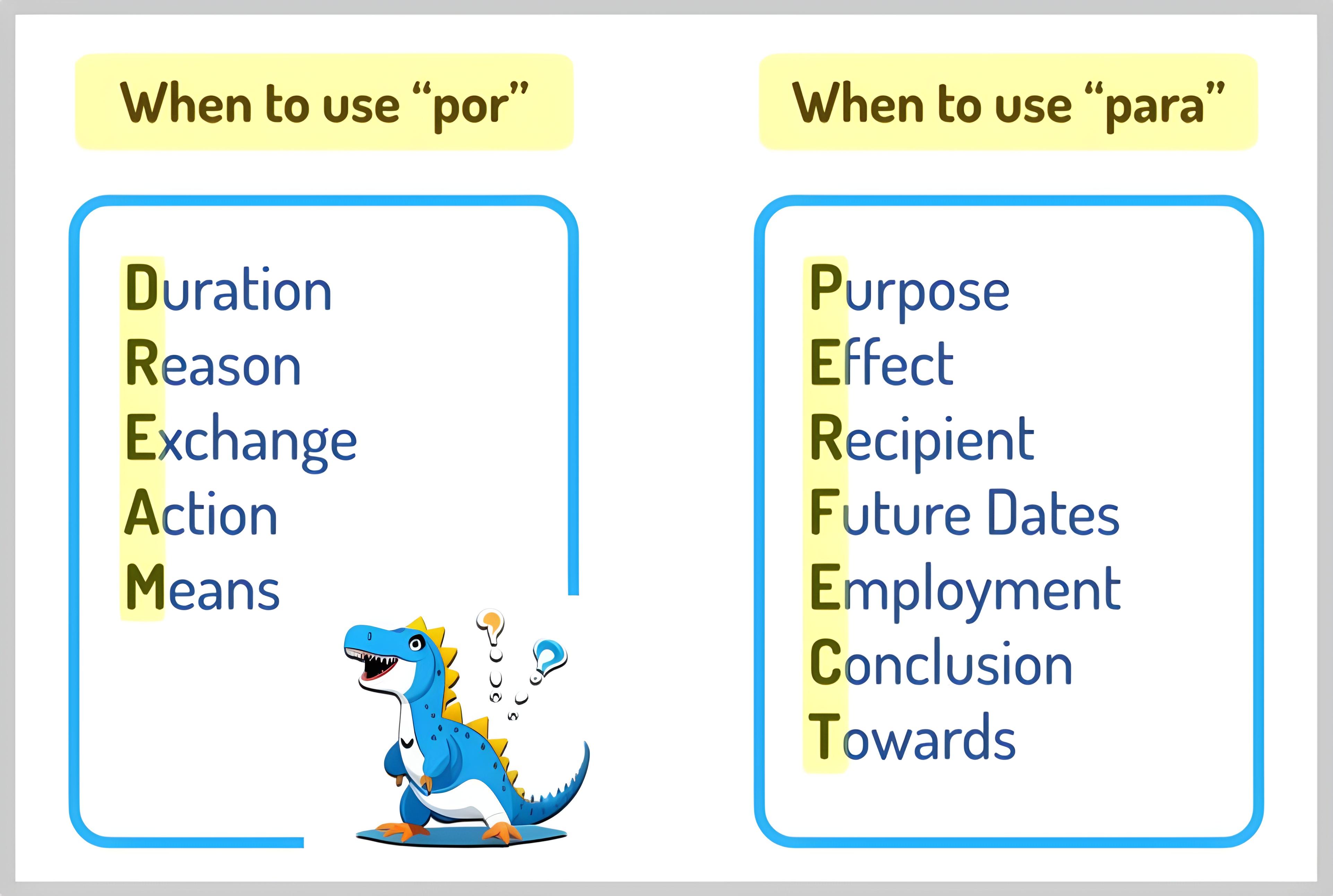Spanish: "Por" vs. "Para"
The Spanish terms por and para can both mean "for," thus it might be confusing to decide which to use. Fortunately, they are employed in many sentences and situations! In order to understand exactly which to use the next time you have to select between por and para, let's look at some tips and tricks!

When to use por in Spanish
The preposition por is employed in particular contexts. DREAM is an acronym that can help you quickly recall when to utilize por: Every letter in DREAM represents a scenario where you'll apply the term!
SITUATION | EXAMPLE |
|---|---|
Duration Use por when you want to talk about a length of time (the duration of something). | 🎶Te amaría por mil años más.🎶 I'd love you for a thousand years more. "Amarte por mil años más" de Yadi Fernández |
Reason (because of) Use por when you want to express a reason for doing something. | 🎶Y es por tí, que late mi corazón.🎶 |
Exchange | 🎶Quisiera cambiar mi corazón por otro que no te esté amando.🎶 |
Action | 🎶Ayer la vi, bailando por ahí con sus amigas en una calle de Madrid.🎶 |
Means | 🎶Si me llaman por teléfono, no estoy.🎶 |
You will also notice that you need to use por for very important expressions:
EXPRESSION WITH POR | TRANSLATION |
|---|---|
por favor | please |
por eso | therefore / because of this |
por supuesto | of course |
por ejemplo | for example |
por lo general | in general |
por la mañana (por la tarde, por la noche) | in the morning (in the afternoon, in the evening) |
gracias por . . . | thank you for . . . |
When to use para in Spanish
Similar to por, there are specific applications for para in Spanish. The term PERFECT might help you quickly recall when to utilize paraphrasing. Every letter represents a scenario in which you'll use para!
SITUATION | EXAMPLE |
|---|---|
Purpose (in order to) | 🎶Yo solo quiero pegar en la radio, para ganar mi primer millón.🎶 |
Effect | 🎶Yo romperé tus fotos, yo quemaré tus cartas, para no verte más.🎶 |
Recipient | 🎶Mil rosas para mí.🎶 |
Future dates | 🎶¿Qué dejaremos para mañana?🎶 |
Employment | 🎶Ella trabaja para mí🎶 |
Conclusion | 🎶Para mí, tú eres un cobarde.🎶 |
Toward (a specific destination) | 🎶Vamos para la playa, para curarte el alma.🎶 Bonus! The second para in this line is used to express purpose. |